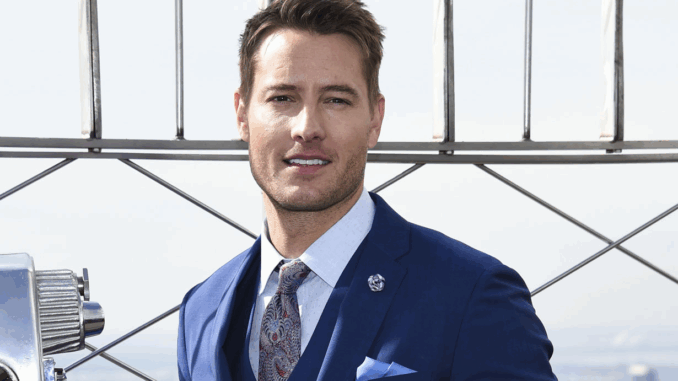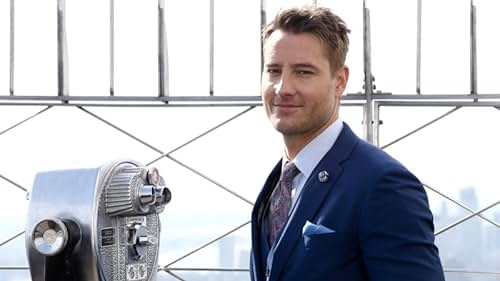
How Justin Hartley Mastered the Art of Reinvention on the Small Screen
Few actors can claim a career trajectory as diverse and quietly impressive as Justin Hartley. From daytime soap operas to prime-time dramas, holiday movies to psychological thrillers, and now leading a hit procedural on CBS, Hartley has successfully navigated the evolving landscape of television with a mix of adaptability, charm, and deep emotional intelligence. His resume isn’t just long — it’s layered, representing nearly two decades of growth and reinvention.
While many TV actors get pigeonholed into a single type of role, Hartley has continually expanded his range, jumping between genres with ease. Whether he’s playing a romantic lead, a comic-relief sidekick, or a man in emotional crisis, he brings a consistency to his performances that makes him not only watchable but indispensable.
This article explores the many phases of Justin Hartley’s television career — from his earliest days on soap operas to his current presence in streaming and network dramas — and how he’s become one of the most versatile actors of his generation.
Soap Opera Origins: Passions and the Art of Melodrama
Hartley’s first major role came in 2002, when he was cast as Fox Crane on the NBC soap opera Passions. For four years, he starred in the wildly over-the-top series, which was known for its supernatural elements, dramatic plot twists, and campy tone.
While soap operas don’t always get the respect they deserve, they’re an incredible training ground for young actors. Filming five episodes a week with fast turnarounds and emotionally heightened scripts demands intense focus, quick memorization, and emotional range — all of which Hartley honed during his time on Passions.
His role as Fox Crane may not have been subtle, but it established a few key things: Hartley had screen presence, he could handle melodrama, and he was willing to put in the work. These skills would serve him well as he transitioned to more complex roles later in his career.
The Superhero Phase: Smallville and Genre Flexibility

In 2006, Hartley took on the role of Oliver Queen, a.k.a. Green Arrow, in Smallville, the long-running WB (later CW) series about Superman’s early years. What started as a recurring role quickly evolved into a main cast position, and Hartley’s Green Arrow became a fan favorite.
The shift to superhero drama was crucial. It showed that Hartley could not only handle physical action sequences but also bring nuance to a character who was both morally gray and emotionally scarred. In the years before comic book shows became dominant, Hartley helped pave the way for layered portrayals of superheroes on TV.
He also began experimenting with directing during Smallville, further demonstrating his interest in shaping narratives, not just performing them.
Network Drama Stardom: This Is Us and Emotional Depth
Hartley’s breakout into the mainstream came in 2016 with NBC’s This Is Us, where he played Kevin Pearson. The show was a cultural phenomenon, blending time-jumping narrative structure with emotional storylines and compelling character development.
Kevin Pearson began as a stereotypical pretty-boy actor with little substance, but over the course of six seasons, Hartley helped evolve him into one of the show’s most complex and beloved figures. He tackled addiction, fatherhood, heartbreak, and identity crises with emotional authenticity, earning critical acclaim and solidifying his position as a serious dramatic actor.
More importantly, This Is Us marked a turning point in how Hartley was perceived. No longer “the guy from Smallville,” he became one of network TV’s most reliable and relatable stars.
Streaming Success: The Noel Diary and Expanding His Audience
In 2022, Hartley starred in The Noel Diary, a Netflix original holiday drama based on Richard Paul Evans’ novel. In the film, he plays a reclusive writer who returns home for the holidays and uncovers family secrets alongside a woman on a similar emotional journey.
This project was significant for two reasons. First, it showed Hartley’s ability to carry a film — something he hadn’t done much of prior. Second, it introduced him to a global streaming audience who may not have followed his network career. The quiet, introspective tone of the film also allowed him to play a more subdued version of his usual romantic lead — one tinged with grief, restraint, and vulnerability.
Streaming, unlike network TV, doesn’t rely on weekly viewership. Its success depends on word of mouth, global accessibility, and performance longevity. The Noel Diary proved that Hartley could thrive in this space as well.
The Action-Drama Pivot: Tracker and Procedural Excellence
In 2024, Hartley debuted as Colter Shaw in CBS’s Tracker, a procedural drama based on the bestselling novels by Jeffery Deaver. In many ways, this is Hartley’s most “heroic” role — he plays a lone-wolf survivalist who tracks missing persons across the country. But Colter is also emotionally scarred, guarded, and haunted by a tragic past.
The series blends mystery-of-the-week storytelling with a slow-burning emotional arc, and Hartley balances both expertly. His Colter Shaw is equal parts rugged and refined, capable and conflicted — a modern archetype that resonates with audiences looking for substance in their procedurals.
Importantly, Tracker also marks Hartley’s role as an executive producer, which means he’s helping shape the show creatively — a reflection of his growing influence in the industry.
Versatility as a Career Strategy
What makes Hartley’s career arc so impressive isn’t just the diversity of roles — it’s the strategic nature of his choices. He hasn’t clung to one genre or format for too long. Instead, he’s adapted to the times, embraced new platforms, and chosen roles that challenge assumptions about his acting range.
He’s gone from daytime soap operas to superhero TV, from emotionally complex network dramas to quiet holiday films and now to a lead procedural on CBS. In doing so, he’s built a career that is resilient, flexible, and increasingly self-directed.
He’s also maintained a strong connection with fans, who have followed him from Passions to Tracker, appreciating his ability to remain grounded even as his star has risen.
Conclusion: Reinvention Is Justin Hartley’s Superpower
If there’s a throughline in Justin Hartley’s television journey, it’s reinvention. He never allows himself to be defined by one role, genre, or era. He evolves. Whether it’s through comedy, action, romance, or drama, Hartley finds a way to bring truth and humanity to every part he plays.
In an industry that often typecasts and limits its stars, Hartley has done the opposite — proving that versatility is not just a talent, but a deliberate career philosophy.
As he continues to take on new challenges, both in front of and behind the camera, one thing is clear: Justin Hartley isn’t just a product of television — he’s becoming one of its most valuable architects.
